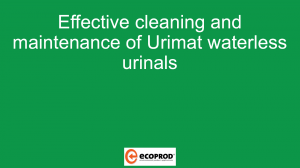There’s been a lot of emphasis on the need to improve hand hygiene during the course of the pandemic. The science is clear – frequent hand washing reduces the risk of a variety of different illnesses. However, research suggests that people are now washing their hands less frequently than they were at the start of the pandemic. So the question is, should we still be washing our hands regularly?
Washing hands regularly is a vital disease prevention tool
The short answer to this question is yes. There are many different ways in which germs can get onto your hands, from droplets caught when coughing or sneezing to touching contaminated surfaces. You’re exposed to thousands of microorganisms through this route every day. The problem arises when people with dirty hands then touch their eyes, noses or mouths, thereby introducing germs into their bodies. The easiest way to prevent this from happening is by frequently hand washing.
In fact the risk of catching COVID through this route seems to be relatively low. Although experiments in lab conditions have shown that the virus can live on exposed surfaces for many hours, in fact this is not the main route of transmission and the evidence for any significant number of infections occurring this way is slim. COVID is primarily an airborne virus transmitted though coughing, sneezing and indeed breathing.
Many diseases are spread through poor hand hygiene
However, there are plenty of other diseases that definitely are spread through poor hand hygiene. Norovirus is the most common cause of viral gastroenteritis and is primarily transmitted by people not washing their hands. Other diseases such as common colds, flu, meningitis and chicken pox are all widely spread by poor hand hygiene. Hepatitis A is often spread by eating contaminated food prepared by people who have not washed their hands after using the bathroom.
One of the unintended but positive consequences of the behavioural changes during the pandemic (lower social contacts, wearing masks, improved hand hygiene) has been a lower instance of many of these diseases. Levels of flu, for example, were way lower than ever before during the winter of 2020-21.
Sensor taps are the most hygienic option and show visitors that you take hand hygiene seriously
Sensor taps such as those offered by Conti+ or miscea provide an additional level of hygiene in your washroom by enabling people to wash their hands without having to touch the tap at all. The pandemic has made people more aware of the importance of hygiene in communal washrooms and switching to sensor products is a good way to reassure anyone who uses your washrooms that you take hygiene seriously.
It used to be the case that sensor taps were seen as only really an option for larger organisations. Fortunately there is a large range of hands-free, sensor operated taps and other products on the market these days. Organisations, whatever their budget, can find hands-free products to suit and such technology has moved on in leaps and bounds over the last few years. Sensor technology now is extremely reliable, low maintenance and obviously significantly more hygienic than the alternatives.
For example, Conti+ sensor activated taps offer a totally hands-free activation method and prevent the transfer of bacteria and build-up of germs through the use of bacteriostatic materials, whilst saving up to 70% of water used in traditional taps. Alternatively, the FX-M washing station unit is a compact and modular washroom unit designed for semi-public and public sanitary rooms which includes touch-free activation of water, soap and air all from a single unit, giving the user a hygienic washing experience, all inside a sleek and modern design.
miscea sensor taps are specifically developed for healthcare, dental and other medical environments where hand hygiene is really critical and, in addition to sensor activated water and temperature control, also offer completely hands-free dispensing of soap and / or disinfectant.
Talk to us today about our range of sensor taps and how they might work for your organisation.













 For the last 8 years Robert Summer – Head of International Sales and Marketing – has developed structured distribution network worldwide for CONTI+ brand. The products offer great benefit for washrooms and shower rooms for public, semi-public and health sector. Today, sustainability, hygiene and smartness are key to CONTI+ solutions. Robert lives the brand and its USPs and loves to support and motivate his team on a daily basis.
For the last 8 years Robert Summer – Head of International Sales and Marketing – has developed structured distribution network worldwide for CONTI+ brand. The products offer great benefit for washrooms and shower rooms for public, semi-public and health sector. Today, sustainability, hygiene and smartness are key to CONTI+ solutions. Robert lives the brand and its USPs and loves to support and motivate his team on a daily basis.











Comments are closed.